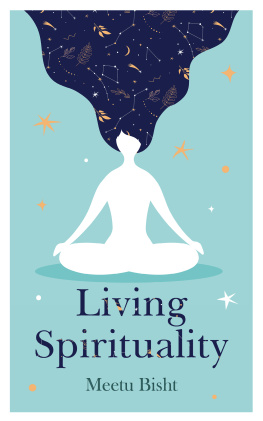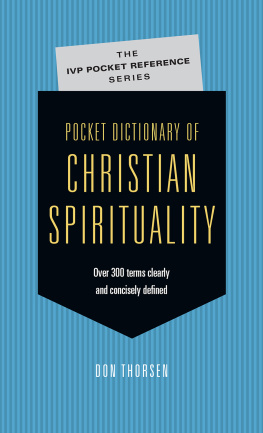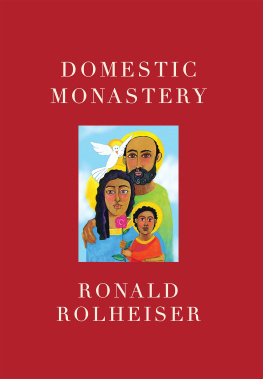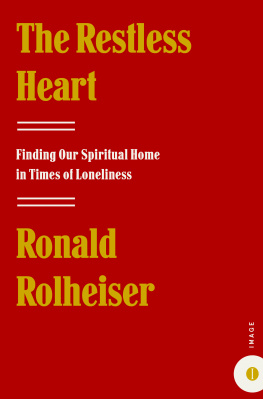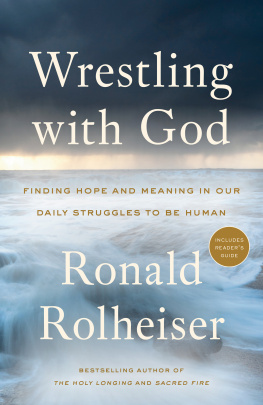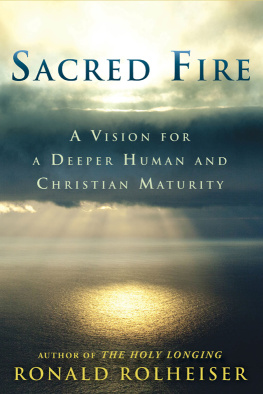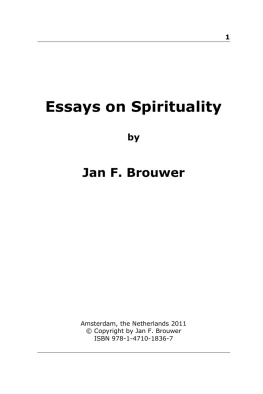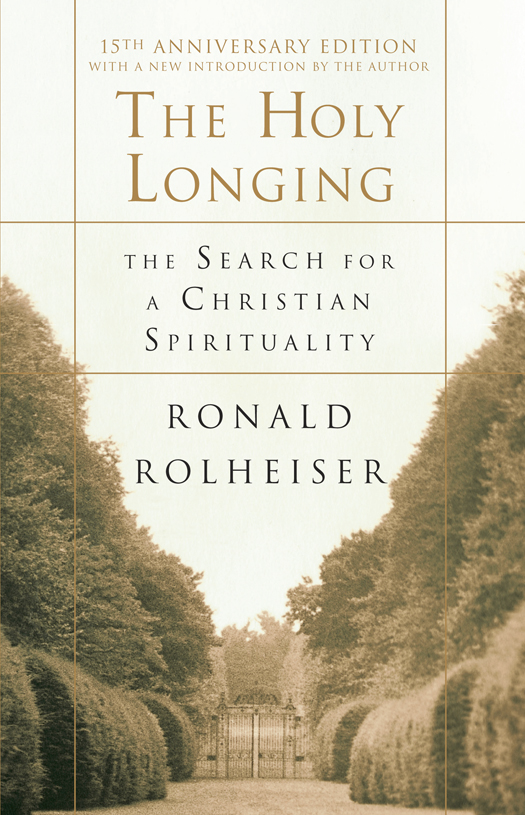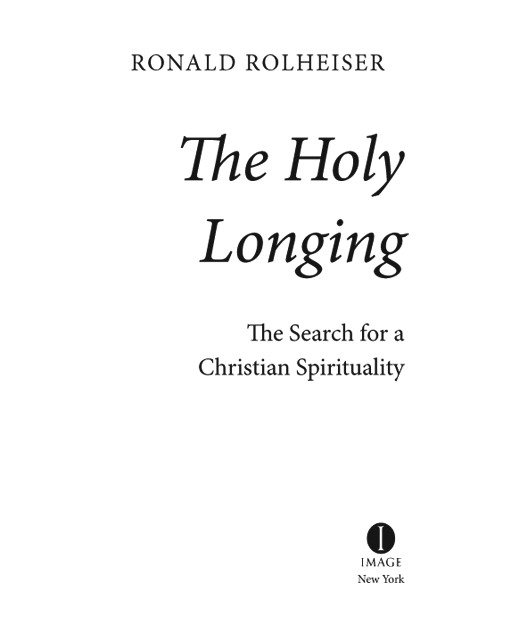Praise for The Holy Longing
One of the best books on Christian spirituality ever written. I have recommended The Holy Longing to literally dozens of peoplefrom the devout believer to the doubtful seekerand all have found it a great help in moving closer to God. Rolheisers introduction to the spiritual life is accessible, inviting, useful, insightful, and wise. And his chapter on sexuality is one of the best essays Ive read on the topicanywhere.
James Martin, SJ, author of The Jesuit Guide to (Almost) Everything
A master weaver is at work hereI found my soul on every page. At last we have a guide who helps us know what to do with the fire of desire within us. At last a comprehensive, life-giving approach to sexuality. At last a dynamic understanding of how the paschal mystery plays in our own lives. At last a way to weave love for the poor and struggling people with the highest mystical love of God I love this book.
Sister Helen Prejean, author of Dead Man Walking
Rolheiser dares to ask the hard questions, but they are our questionsthe deep ones we are slow to let surface. Then he dares to answer them with clear answers delivered in simple, straightforward language. But he doesnt corner us with his clarity. He lets us look at different spiritualities, even a spirituality of sexuality. This is a book that engenders hope because it shows there are paths for each one of us.
Rev. Basil Pennington, O.C.S.O.
Spiritual books abound but few hit the mark. Ronald Rolheisers latest book is one of the few. Sound good sense and insight are combined with genuine sympathy and understanding for the majority of us who struggle spiritually.
Alban McCoy, The Tablet
Spirituality is often given a bad name because it can mask a damaging sentimentality. The Holy Longing is a bracing alternative to religious posturing. Truly incarnational, Ronald Rolheiser grounds his vision of the spiritual life in hard real-life experiences and tells tough truths. In the end, it is the hard truths of compassion, forgiveness, and action in the world that give us a true and lasting hope. A much-needed antidote to the consumerist view of religion, this book is both a delight and a challenge to read.
Alan Jones, dean of Grace Cathedral and author of The Souls Journey
[Rolheiser] writes clearly and engagingly; his language can at times be lyrical. He is never sentimentaland all the time he is absolutely grounded in reality.
Herbert ODriscoll, author ofA Doorway in Time
Without doubt, Ronald Rolheisers The Holy Longing is one of the best books about Christian spirituality that has been published in many a year. Its insights are just what all of us need at this moment of history. It blends the old and the new in ways that few other authors can do.
Most Reverend Rembert G. Weakland, O.S.B., archbishop emeritus of Milwaukee
ALSO BY RONALD ROLHEISER
Our One Great Act of Fidelity: Waiting for Christ in the Eucharist
Secularity and the Gospel: Being Missionaries to Our Children
Forgotten Among the Lilies: Learning to Love Beyond Our Fears
The Restless Heart: Finding Our Spiritual Home in Times of Loneliness
Against an Infinite Horizon: The Finger of God in Our Everyday Lives
The Shattered Lantern: Rediscovering a Felt Presence of God
Sacred Fire: A Vision for a Deeper Human and Christian Maturity
Copyright 1998, 1999, 2014 by Ronald Rolheiser
All rights reserved.
Published in the United States by Image, an imprint of the Crown Publishing Group, a division of Random House LLC, a Penguin Random House Company, New York.
www.crownpublishing.com
IMAGE is a registered trademark and the I colophon is a trademark of Random House LLC.
Originally published in hardcover in the United States in slightly different form by Doubleday, a division of Random House LLC, New York, in 1999.
Library of Congress Cataloging-in-Publication data is available upon request.
ISBN 978-0-385-49419-9
eBook ISBN 978-0-307-88636-1
Cover design by Jane Yeomens
Cover photography Mario J. Pulice
v3.1
For Henri Nouwen, 19321996, our generations Kierkegaard. By sharing his own struggles, he mentored us all, helping us to pray while not knowing how to pray, to rest while feeling restless, to be at peace while tempted, to feel safe while still anxious, to be surrounded by a cloud of light while still in darkness, and to love while still in doubt.
Contents
Introduction
to the Fifteenth Anniversary Edition
of The Holy Longing
Our life is a short time in expectation, a time in which sadness and joy kiss each other at every moment. There is a quality of sadness that pervades all the moments of our lives. It seems that there is no such thing as a clear-cut pure joy, but that even in the most happy moments of our existence we sense a tinge of sadness. In every satisfaction, there is an awareness of limitations. In every success, there is the fear of jealousy. Behind every smile, there is a tear. In every embrace, there is loneliness. In every friendship, distance. And in all forms of light, there is the knowledge of surrounding darkness. But this intimate experience in which every bit of life is touched by a bit of death can point us beyond the limits of our existence. It can do so by making us look forward in expectation to the day when our hearts will be filled with perfect joy, a joy that no one shall take away from us.
Henri Nouwen wrote those words and we all know how painfully true they are. In this life, all symphonies remain unfinished. Our deep longings are never really satisfied. What this means, among other things, is that we are not restful creatures who sometimes get restless, fulfilled people who sometimes are dissatisfied, serene people who sometimes experience disquiet. Rather, we are restless people who occasionally find rest, dissatisfied people who occasionally find fulfillment, and disquieted people who occasionally find serenity. We do not naturally default into rest, satisfaction, and quiet but into their opposite. Why?
Because at the center of our lives lies a fiery energy, a perpetual disquiet, a lingering loneliness, an inchoate ache for something we can never quite name. All of our miseries, Pascal once said, ultimately stem from the fact that we cannot sit still in a room for one hour.
But where does this fire come from and what is it for? The same question is asked everywhere. Why this restlessness? In her award-winning series of novels, Children of Violence, Nobel Prizewinning novelist Doris Lessing has her heroine, Martha Quest, pose that question: Toward what is this fiery energy directed? Devoid of any religious perspective, Martha can only understand this energy as a blind, erotic, high-voltage fire inside us. And what is this fire for? Lessings answer: For whatever we choosecreativity, love, sex, hate, altruism, boredom, martyrdom.
But this can also be understood in a very different perspective. Inside of Christianity, Judaism, and all major religions, this fiery energy is not simply seen as a blind, erotic, wild, promiscuous force. It has very clear intent and a monogamous focus; namely, it is a sacred fire, a holy longing, which, in the famous words of St. Augustine, directs us forever toward God:


